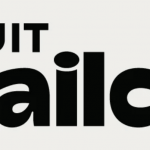-
News & Trends -
Sales -
Marketing Related Topics -
B2B Software Guides Related Topics -
Free Tools & Resources -
- About Us About Us


Marketing CRMs are software that combine standard sales and pipeline management features with powerful marketing capabilities that help you generate and nurture inbound leads. The top options offer tools like social media integration, email marketing, website visitor tracking, and marketing automation and analytics, which help you reach leads from multiple sources and bring them into your pipeline. We've reviewed the best solutions to help you choose one.
Below is our list of the top seven marketing CRMs for marketers and salespeople:
While all of the CRMs on this list are great options, we found that Zoho CRM offers the best overall value for sales and marketing professionals seeking a marketing CRM. Continue reading to dig deeper into each option, including its use case, pricing plans, and key features. Otherwise, skip down to see how we evaluated the CRMs across the six main categories.
Note: All per-user prices are with a one-year commitment unless otherwise noted.
Offers robust marketing features such as email campaigns, social media management, and more.
Zoho CRM is a leading sales and marketing CRM that offers robust multichannel marketing features and a free plan. Starting at its paid Standard level, you'll receive access to marketing automations, email campaigns, social media management tools (earning it the top spot as a social media CRM), and more in addition to standard CRM sales tools. Zoho CRM also offers affordable marketing add-ons, such as Campaigns for advanced email marketing.
While Zoho offers a free level with basic sales and marketing features, you must upgrade to access most of its key tools. Check out HubSpot Marketing Hub if you're looking for a free plan that's truly usable.
Provides solid features in its free tier plus the ability to upgrade and integrate with Sales Hub and Service Hub.
HubSpot Marketing Hub is HubSpot's marketing platform that offers critical free and paid tools. When you sign up for the free version (aka HubSpot CRM), you'll receive some Marketing Hub tools like email marketing, web forms, and live chat, plus basic sales and service features. Upgrade to a paid Marketing Hub level for more robust versions of your existing marketing features plus additional ones like social media management and landing page A/B testing.
HubSpot's free version of Marketing Hub is highly useful, and its upgrades provide a solid amount of additional features plus seamless integration with the Service and Sales Hubs, but the paid tiers get pricey. For a free CRM with more affordable upgrades, check out Zoho CRM.
Give users access to native social media advertising management not typically provided by other CRMs.
Bitrix24 is an online workspace offering many sales and marketing tools, including robust social media management. What makes Bitrix unique is that within the CRM, you can manage your social media profiles, create lookalike audiences, and publish social media advertisements. Most CRMs require you to leave the platform when working with social media ads, so this native integration is useful for businesses that prioritize social media marketing for lead generation.
Bitrix24's paid social media features make it more convenient to use if social media is key to your marketing plan, but its UI can be tough to navigate. If you want an easier-to-use CRM that also offers great social media tools, consider EngageBay as an alternative.


Helps you launch drip campaigns with its pre-set automations and time-based triggers.
Mailchimp is an email marketing platform that allows you to create a targeted series of emails with its wide selection of automations. Choose from its wealth of classic email automation triggers such as campaign activities, audience behavior, workflows, and even actions from your connected ecommerce store. You can also opt for date-based automation to target subscribers based on specific events like birthdays, anniversaries, and other recurring dates.
While Mailchimp offers a wide selection of email marketing automations, it has a steep learning curve, which can be challenging for newbies. For a marketing CRM that’s easier to learn, check out EngageBay, which won in the ease of use category and offers email marketing features.


Provides a highly affordable all-in-one package for marketing, sales, and service.
EngageBay is a newer CRM and marketing platform with a free version and premium tiers. It offers separate marketing, CRM and sales, and service packages, but it's designed as an all-in-one platform. This is reflected in its bundle pricing, which is affordable and similar in cost to the individual plans. This means your marketing team can generate leads, sales team can close deals, and support team can handle tickets, all on a single platform for a low monthly fee.
EngageBay offers a basic free option and a discount on a two-year commitment, but if you have budget constraints and are looking for the best free bundle available, check out HubSpot Marketing Hub, which offers even better marketing, sales, and service tools for free.
Allows you to track marketing campaigns across channels with robust reports and dashboards.
Salesforce Sales Cloud is a highly customizable CRM that lets you manage and monitor marketing campaigns. Sales Cloud is primarily sales-focused, but it’s an affordable alternative to Marketing Cloud for organizing your marketing plans and assets and associating them with your sales activities. Communicate your return on investment (ROI) to stakeholders and make budgeting decisions based on past campaign data with its reporting and analytics features.
Although Salesforce comes with advanced reporting tools and decent marketing features, its interface can be complicated. If you’re looking for a more intuitive marketing CRM with reports and visual dashboards across paid tiers plus marketing add-ons, consider Pipedrive.
Offers a la carte marketing add-ons to get the best possible sales and marketing features.
Pipedrive is an easy-to-use CRM with a visual approach to marketing and lead management via its kanban-style pipeline. While its plans include some marketing features, where it really shines is with its marketing add-ons, including LeadBooster to generate leads, Web Visitors to track your site viewers, and Campaigns to market to your new leads via email. The add-ons transform this solid sales CRM into a robust marketing tool and one of the best email marketing CRMs.
While Pipedrive is great for teams that are willing to purchase a paid CRM plus add-ons, it's not right for those looking to start with a free plan and upgrade only when necessary. If this is you, check out HubSpot Marketing Hub for a great free place to start.
The best marketing CRM platforms provide the following features:
Design, launch, and optimize targeted email drip campaigns to support your business’ marketing funnel to capture leads, generate ROI, and build email databases.
In our evaluation of the best CRM software for marketing features, we used six criteria to analyze our options, each containing subcriteria and holding a specific amount of weight toward the final score. Then, we used these benchmarks to assign each option a rating out of five, as well as to determine an overall winner. Finally, we identified a main use case for each option on our list.
The best marketing CRMs offer core CRM features and strong marketing tools and are affordable, so these criteria held the most weight. Next, we assessed each option’s ease of use and ensured that each CRM also comes with solid advanced features and customization capabilities. Finally, we assessed the different types of customer support solutions available.
Here, we looked into standard CRM offerings, including lead management and pipelines, as well as marketing features including marketing analytics, campaign management, and built-in social media tools.
This category takes into account each marketing CRM’s pricing plans, free versions or trials, and billing options.
We determined the approachability and usability of each option based on real user reviews on certified sites and evaluated the accessibility of their knowledge bases.
We evaluated the premium tools each CRM offers, such as advanced marketing analytics, A/B testing, ad management, generative AI, and more.
We checked each option’s ability to create multiple pipelines, custom deal stages, and personalized emails, as well as its integration with both paid and free third-party apps.
We browsed through user feedback and ratings on reputable sites to evaluate each CRM’s user support solutions via live chat, phone, and email.
An effective marketing CRM will help your business generate and nurture leads through various tools and customization capabilities. Finding the right marketing CRM depends on your goals (both short-term and long-term), the audience you’d like to reach, and the types of marketing campaigns you’d like to run. Also consider the resources your business has, such as your budget allotted for marketing tools, manpower, and technical expertise.
Marketing CRMs should include standard CRM tools for managing tasks, automating workflows, and basic reporting. Robust marketing platforms also offer lead generation tools such as lead capture forms and web visitor trackers, as well as nurturing tools including email builders, social media management, and marketing analytics. Marketers should also look for advanced tools (whether built-in or add-ons) for lead scoring, competitor tracking, A/B testing, and AI.
A marketing CRM is a platform that helps businesses manage their marketing activities and customer interactions. While general CRMs offer standard features for sales activities and daily operations, marketing CRMs put more weight on launching successful inbound campaigns across various channels. Businesses need marketing CRMs to reach the right audience with the right content and fund the activities that bring them the most revenue.
Advertising and marketing campaigns are rarely successful in the 21st century without the support of CRM marketing software. But CRM software is more than a simple hub for connecting salespeople and marketers with their customers. In modern times, it can serve as a launchpad for your entire business model. Choose from this list of the best marketing CRMs or check out our article on the four types of CRMs, which includes marketing CRM software plus others.
This article was written by J.R. Johnivan and updated by Kezia Jungco.


JR Johnivan is a contributing writer for Selling Signals and a self-identifying tech nerd with a background in programming and hardware. He uses his understanding of tech to help people make SaaS- and software-related decisions through comparative guides. For Selling Signals, JR writes about CRMs and related software to help readers choose the best option for their business.

Selling Signals delivers actionable advice for sales and marketing professionals. Learn strategies that help you hit targets, strengthen customer relationships, and win more business. Get expert advice on lead generation, sales processes, CRM software, sales management, and account management directly to your inbox.
Property of TechnologyAdvice. © 2026 TechnologyAdvice. All Rights Reserved
Advertiser Disclosure: Some of the products that appear on this site are from companies from which TechnologyAdvice receives compensation. This compensation may impact how and where products appear on this site including, for example, the order in which they appear. TechnologyAdvice does not include all companies or all types of products available in the marketplace.